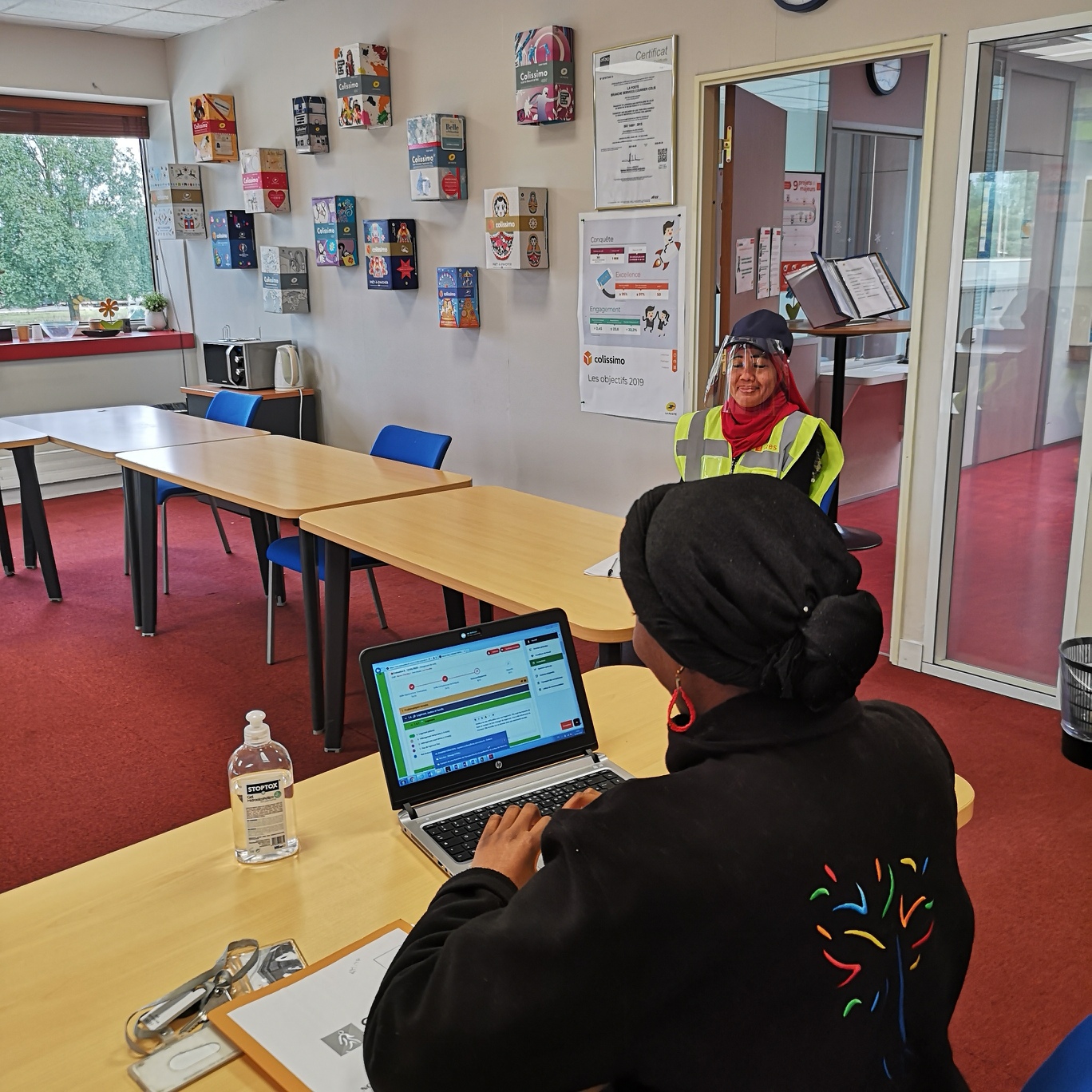Ares: getting people back into work - when no one is working
Ares runs job-based integration structures. But on 17th March 2020, people stopped working in France. Out of one thousand integration courses, two-thirds essentially came to a standstill on the day of the lockdown.
How can we adapt and get these integration schemes back up and running in a world which will never be the same again? Interview with a major partner of Societe Generale Foundation which has had to tackle this problem: getting people back into work when work has stopped.
Ares’ situation
Fabien de Castilla, co-managing director of the Ares Group, is happy to explain the situation. The lockdown meant 70% less work, and consequently 70% less turnover. To protect his NGO, he had to furlough 70% of his employees.
“We are essentially integration service providers”, explains Fabien. “The majority of services were suspended by our clients, and for others we made the decision to stop because we couldn’t continue to offer a safe environment.”
Ares provides two-fold support to its beneficiaries: a job-based integration journey, and social and professional support. For the first, as we already noted, most employees stopped working.
“It certainly disrupted our integration schemes”, explains De Castilla. “And it negatively affected people who were already experiencing difficulties.”
On the other hand, social and professional support was previously mainly provided in person by social & professional support workers. They spent an average of one hour per week with each employee. This became impossible overnight because of the lockdown.
Keeping in touch at all costs
Ares’ first action was to make its support digital. All social teams switched to working from home to continue offering support, ringing employees who were part of the integration schemes at least once a week. Discussions also took place by SMS, email and tools like WhatsApp.
The number one priority was to keep in touch.
For Mélanie Robin, a social and professional support worker for the Ares group, it was important to listen carefully to beneficiaries to identify any social emergencies and to be able to respond wherever possible. They were even more vigilant with people who might have problems with addiction or significant social problems (e.g. the homeless).
“We were particularly mindful of these groups to ensure their specific needs were met”, she explains.
Discussions often changed with lockdown: talking less about social obstacles to employment and more about individual or family well-being.
“How are you coping during this time?” was a common question, whether referring to managing school time with children, or caring for a disabled child when various assistance is no longer available.
But Ares quickly understood that whilst it was important to keep in touch with their beneficiaries, it also needed to outline actions for its own employees. Communication was bolstered between support teams as Ares implemented what it calls a “social hotline”, to catch up with integration workers on a daily basis and to be able to share best practices and information.
The major digital development project continues
Obviously, the Ares group did not wait for lockdown to start its digital transformation. Several digital development projects have been launched since 2017 thanks to the support of Societe Generale The Future is You Foundation.
This pandemic has really sped up the group's digital development. We have been able to expand usage and ensure greater adoption of digital tools.
Fabien De Castilla, co-managing director of the Ares Group
This digital transformation has focused on three major lines:
1 - Digital training, noted as a “real driver of employability”, this training focused on supporting professional and social activities using computers.
2 - Training in digital production tools is a way to improve the skills and therefore employability of their employees. They get them to use computer tools on a daily basis to perform additional tasks (stock management, archiving, etc.).
3 - Digitalisation of social support tools, to simplify interactions between support staff and their beneficiaries. Rather than spending time on paperwork in person, this frees up time to be able to use it more efficiently.

Always learning
Mélanie Robin realised that their beneficiaries were worried about two things. They were afraid about losing their job... but sometimes they were even more afraid about returning to work
We didn’t rush back to the offices on 11 May. It will be a gradual process. The challenge will be to get everyone back to the same level as before.
Fabien De Castilla, co-managing director of the Ares Group
The Ares Group needs to keep learning.
Whilst they immediately identified the need to adapt the working environment, they also needed to guide the employees involved in integration schemes during their break times and advise them on getting to work.
Fabien tells us that during lockdown, employees respected all rules by arriving at different times, sticking to verbal greetings, etc.
But during their coffee break, they all sat on the same bench, not abiding by social distancing rules.
“We have to be very careful about habits which are difficult to pick up”, explains De Castilla. “And this is even more applicable to people who have poor language skills.”
ARES teams realised that they had prepared the working environment very well, but they forgot to think about the surrounding issues.
They needed two weeks of lockdown to realise that it is not being at work that worries people... but the commute. They did not feel safe on public transport. So they needed a new way to support beneficiaries during this unusual situation.
The Ares group drew many lessons from this lockdown period. The problems encountered by the 30% of people still working during lockdown offered valuable lessons to help prepare for the entire workforce to return to work.
